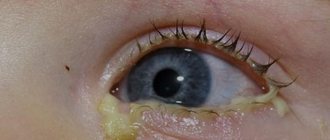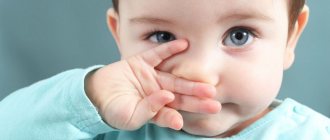The ear itches, gets wet and itches inside: reasons
It's no secret that ear itching is truly unbearable suffering. In this case, you must definitely pay attention to this, because the presence of such itching may indicate all sorts of diseases. Very often people tend to explain such body signals in terms of signs and beliefs. But doctors urge everyone to be more prudent and, before explaining the tooth in the ears with folk beliefs, to rule out medical diseases. Today we will try to deal with this fairly common problem and, of course, find a solution.
It is worth saying that absolutely everyone, be it a child or an adult, can encounter this disease. During attacks of itching, only one desire arises - to get to the place that itches and soothe the itching. If you experience these exact symptoms, you should immediately consult a doctor.
As mentioned earlier, you should pay attention to the fact that your ear itches when it happens regularly and is accompanied by such itching and pain. Of course, there are more than enough reasons why ears itch, but it must be said that all of them are signals from our body about a possible danger to health. So, let's look at the most common of them:
- Infections. All kinds of infections always cause inflammation inside the ear, and this in turn provokes itching and discomfort. There is an impression that there is something in the ear and an irresistible desire to get it out naturally arises.
- Otitis. With this disease, the ear becomes inflamed due to harmful microbes entering it. It is with otitis that one can observe a “wet ear”. It is worth noting that the discharge can be either ordinary mucous or purulent.
- Fungal diseases. Such diseases occur in the human ear canal and are accompanied not only by severe itching, but also by the appearance of crusts in the ears, and fluid discharge and plaque formation may also be observed. You should know that, despite its prevalence, this disease is quite finicky in treatment, so the sooner you seek qualified help, the easier it will be to get rid of the disease.
Itchy ear
- The least serious cause of itching is the accumulation of large amounts of sulfur. The solution to this problem is quite simple - you just need to clean your ears from excess wax or remove wax plugs. If after doing this, the itching does not stop, then you are in a straight line to see an otolaryngologist.
- Water getting into your ears can also cause discomfort This can happen during any contact with water, including washing your hair. In order to get rid of such itching, you need to remove water from the ear, and this can be done with the help of an ear stick. If a lot of water gets in, you need to calmly tilt your head towards the itchy ear and wait until it pours out. It should be noted that it is forbidden to clap the ears, as this can cause even more harm.
- Individual characteristics of the body. There are people whose ears itch from birth. The reason for this may be excessive dryness in the ears or, conversely, the production of excess wax. To get rid of unnecessary dryness, you should consult a doctor, he will recommend special medications. If you are faced with the opposite problem, then regular ear cleaning will be the solution.
- Allergic reactions. The use of various hygiene products and cosmetics can provoke such itching. In this case, the doctor will most likely prescribe you antiallergic drugs, after taking which your ears will stop itching.
- Damage inside the ear. Sometimes a person, through his own carelessness, can injure the ear canal. This can happen when you try to clear the ear of accumulated wax with an object not intended for this purpose. What could it be? Yes, anything - a match, a hairpin, and even a pin.
- Experts also note that itchy ears can simply be due to age. Yes, oddly enough, older people’s ears itch much more often than the younger generation.
- Hormonal imbalances and disruption of normal metabolism. It has long been known that in the absence of proper metabolism, various kinds of diseases can occur in the human body, and itching in the ears is no exception.
- A disease such as diabetes can also provoke constant and severe itching in the ears.
- Another cause of persistent itching can be ear mites.
- Doctors note that sometimes itching in the ear canal can be caused by nervous disorders.
- If we are talking about a child, then possible causes may also be insect bites or teething, especially at 5-8 months of life.
As we see, there are many reasons for the appearance of itching in the ears, and they all require an immediate visit to the doctor, since delaying the necessary treatment can lead to irreparable complications - hearing loss, complete deafness, as well as meningitis. Since we're talking about treatment, let's look at what to do in cases of constantly itchy ears.
Ear injury
The presence of traumatic damage to the ear is also accompanied by the appearance of changes on the skin. Depending on the location of the lesion, the child may have a red ear inside the external auditory canal or a pathological focus in the area of the auricle. This lesion may be caused by inaccurate ear cleaning, as well as injury to it with sharp objects or a foreign body. Otolaryngologists note a sufficient number of cases of foreign body insertion into the ear in children from 2 to 5 years old during incorrect play with small objects.
Untimely removal of a traumatic object in the absence of disinfection measures can lead to infection and the development of inflammatory processes in the outer ear.
Treatment measures in this case include
- removal of a foreign body;
- regular antiseptic treatment of the affected area;
- if necessary, use ointment or ear drops containing antibiotics.
Drug treatment for itchy ears
It should be noted that the correct thing to do in such a situation is to seek help from a specialist. Ear diseases fall under the competence of an otolaryngologist, so you have a direct path to him. The doctor will definitely examine your ear and also order you to take a blood test and a smear.
With the help of these tests, the specialist will find out the exact cause of constantly weeping and itchy ears. And only after all these manipulations will the necessary course of treatment be prescribed. So, let's look at what drugs help cope with the disease.
- If the otolaryngologist has diagnosed otomycosis , that is, an infectious disease of the outer ear caused by various fungi, then first of all, treatment will be carried out with antifungals - dermatological drugs. Naturally, all manipulations with the ear are carried out only after it has been completely cleaned. The most commonly prescribed medication is Candibiotic. These ear drops help eliminate itching and pain in a short time. As a rule, you need to drip a few drops at least twice a day.
- For otitis media, it is recommended to treat the ears with drops that contain an antibiotic. The doctor may prescribe "Tsiprinol" or "Tsipromed". The dosage of almost all ear drops is very similar, so these drops need to be instilled 1-2 times a day.
Treatment of ear itching
- If itching is caused by allergic reactions , you should take Cetrin or Loratadine. Adults and children over 12 years old should take Cetrin 1 tablet per day. For children, the dosage will be half a tablet twice a day.
- If itching in the ears is accompanied by an increase in temperature, you should take something antipyretic. Ibuprofen may be a good option.
- Also, anti-inflammatory drops are almost always prescribed for ear diseases; they not only relieve inflammation, but also eliminate pain. Most often, an otolaryngologist prescribes Otipax.
It is worth remembering that self-medication is dangerous, so before using this or that drug you must consult a specialist who will select the right medicine for you. Do not forget that even the most harmless medications have contraindications, and you also need to take into account the individual characteristics of each organism.
Let's move on from drug treatment to folk remedies. It's no secret that most people are in no hurry to go to the doctors, and before the right moment comes, everyone self-medicates with folk remedies. Is this good or bad? Let's figure it out.
Treatment of itching in the ears with folk remedies
As we have already found out, there are a huge number of reasons for constantly itchy ears and, unfortunately, not all of them are safe for human health. Anyone who wants to cure themselves using “grandmother’s methods” needs to understand that it is very important to objectively assess the state of their health.
If you have been observing the previously listed symptoms, in particular itching, burning in the ears, pain and congestion for quite a long time, do not hesitate, because such an irresponsible attitude towards your own health can play a cruel joke on you. So, let's begin.
- There is an opinion that tea tree and almonds , or rather their oils, are quite good antifungal agents. These products are very easy to find at the pharmacy. It is recommended to instill 1 drop into the affected ear.
- Also, to get rid of itching in the ears, use propolis tincture. It should be used to wipe sore ears. This can be done both outside and inside the ear.
- Calendula tincture is recommended for use in otitis media. Usually 2-3 drops are instilled once a day. This product not only destroys all germs, but also prevents the infection from spreading further.
- has a good anti-inflammatory effect . To treat an itchy ear, it is enough to instill 1-3 drops twice a day, after performing ear hygiene procedures.
Folk remedies for itching in the ears
Be careful, despite the availability of all folk remedies, you must remember that each person is individual and what helped someone may harm you. Treatment with folk remedies as an addition to medications would be more appropriate. By the way, an otolaryngologist can advise you on this issue.
Sometimes it happens that an unpleasant, irritating itching appears in both the ears and throat at the same time. What could be the reason and how to get rid of it? This question is quite logical.
What to do if the inside of your throat and ears itches?
It’s no secret that the ear, throat, and nose are very closely connected, and it’s not for nothing that the same doctor treats these organs. Therefore, it is logical that sometimes even with ear disease, itching appears in the throat. This happens due to the fact that infectious agents enter the single organ system “ear-nose-throat” and begin their “harmful actions”.
The causes of itching in both the throat and ears can be:
- Bacteria and viruses. The most common disease is the common cold, and a little less common is sore throat.
- already known to us . This disease very easily affects both the throat and ears, since it spreads through the bloodstream. It is quite difficult to cure fungus, so you should not postpone a trip to the ENT specialist.
- can also trigger itching . As you know, an allergic reaction of the body can manifest itself in different ways, but, as a rule, the symptoms are a runny nose, red eyes, cough, sore throat and itchy ears.
Itching in the ears
All these diseases require serious medical treatment.
- For colds, as a rule, antipyretics are prescribed, as well as syrups and tablets for coughs and sore throats. If the disease causes complications, then antibiotics are used. And, of course, do not forget about increasing immunity; in this case, vitamins will come to the rescue.
- If an allergy causes discomfort, we again turn to antiallergic drugs, and to relieve a sore throat, you can buy Septefril or Cameton tablets.
Sometimes seemingly harmless itching in the ears can indicate a serious illness.
Prevention
If a child scratches his ears due to improper care, parents are able to independently correct the mistakes made, as well as avoid their repetition in the future.
It is recommended to clean your child’s ear canals with sterile cotton swabs at least once a week. In this case, you need to make sure that small fibers of the material do not get stuck in your ears. When performing the procedure, you do not need to be too zealous. After all, in a baby’s delicate ear it is quite easy to scratch the skin and even damage the eardrum. Ultimately, cleaning your ears too often and thoroughly can remove important bacteria.
Avoiding damage to the mucous membranes of the ear will allow isolating the baby from contact with all kinds of allergens: flowering plants, animals, and an abundance of dust. For similar purposes, a nursing mother should change her diet. Perhaps your child is scratching his ears because certain allergens enter his body through milk. Your doctor will prescribe an appropriate course of multivitamins to strengthen your baby’s immune system.
What to do if your ears itch inside if you have diabetes
- Yes, oddly enough, it happens that your ears itch due to a disease such as diabetes. This happens due to the fact that with this disease, toxins are very actively produced, which cause itching.
- Since the origin of this swelling does not relate to ENT diseases, it can only be eliminated by influencing the direct source.
- Diabetes mellitus is a very serious disease that requires constant health monitoring. Self-medication is strictly prohibited.
- You can relieve itching in the ears by using those remedies that have been mentioned several times today, but you must understand that the unpleasant sensations will be eliminated only temporarily; the root cause of the itching requires treatment.
Itching in the ears
Quite often it happens that the illness seems to have been cured, but the unpleasant sensations still continue to cause discomfort and inconvenience.
Itching in the ears after otitis media: how to treat
The likelihood that even after completing the full course of treatment for this disease, itching in the ears will be present and interfere with normal life is very high. Why is this happening? This question will probably be asked by everyone who finds themselves in such a situation.
The fact is that after otitis media, excessive formation of wax - this is what can cause an itchy ear. In this case, itching can be called a residual phenomenon. How to act in such a situation? The answer is quite simple.
- Of course, you shouldn’t ignore this itch. Because it can be caused not only by earwax, but also by other diseases.
- You also need to remember that each body fights the disease differently, and even following all the doctor’s instructions, sometimes it happens that the prescribed treatment is not enough for a complete recovery. In this case, you need to contact a specialist again and get his advice.
- If the cause of itching after otitis is still recognized as sulfur, which has accumulated in large quantities in the ears, then the use of a drug such as Otinum would be appropriate. This drug has an excellent disinfecting effect and also perfectly dissolves sulfur plugs. As a rule, it is recommended to instill 3-4 drops several times a day. The total course of treatment with this drug should not exceed 10 days.
Sometimes itching in the ears may not appear from medical diseases, but from mechanical effects on them.
Child scratching his head
If you notice cases when your baby scratches his head or areas around the ears, then the reasons for this action may be:
- Allergy to shampoo or cosmetic care products.
- Pediculosis and other scalp lesions caused by insects.
- Various skin lesions by microorganisms.
- Allergy to bedding or detergents.
In this case, it is necessary to carefully examine the child’s head and, if any skin defects such as ulcers or acne are detected, contact a pediatric dermatologist, who will refer you for an examination and prescribe a course of treatment.
If you find small insects in your baby’s head, you must urgently purchase an anti-lice product at the pharmacy and use it as directed, following the instructions from the package.
What to do if your ears itch inside from headphones
In the age of modern technology, it is difficult to imagine us without mobile phones, tablets and, of course, headphones. Who would have thought that our favorite accessories could cause such unpleasant sensations, but, unfortunately, sometimes this is exactly what happens.
Itching from headphones
Due to the mechanical impact of headphones on the ears, sulfur begins to be produced very actively, which leads to its accumulation. This is precisely the reason why itching occurs after using the headset.
- If headphones are the cause of your itchy ears, you should definitely stop using them for a while.
- This cause does not require drug treatment. It is worth remembering that the appearance of sulfur is a protective reaction of the body to an irritant. Therefore, do not rush to completely clear your ears of this “protector”.
- To prevent such situations, before each use of the headphones, you must thoroughly wipe them with alcohol.
- And also don’t forget about safe listening. Don't listen to music too loudly or for too long. It is these moments that can act as mechanical stimuli.
Ears itch before rain: what to do
A less alarming cause of itching may be the body's reaction to the weather.
- Very often we are faced with headaches “due to the weather” or pain in the joints, and others are worried about painful sensations in the area of scars. It is no longer a secret that the human body is very closely connected with nature and changes in it.
- Many people notice a strange peculiarity: before rain or a thunderstorm, their ears begin to itch. Since the cause of itching, as we understand it, is not medical, it does not require any treatment.
- One has only to draw your attention to the fact that this kind of “weather itch” is quite possible to tolerate and it does not bring too much discomfort. If your ears itch constantly, then you need to consult a doctor; perhaps the reason is not the weather at all and requires serious treatment.
- If the itching is very strong, you can scratch your ear a little with an ear stick. It is worth remembering that the wand does not need to be inserted far, and you also do not need to completely clean out the earwax.
As we found out today, seemingly harmless ear scratching can be a signal of various diseases. That is why you should not ignore even the first symptoms of ear diseases. Experts insist that at the first suspicion of any ENT diseases, you should consult an otolaryngologist.
Even if you are confident that you are able to diagnose yourself and prescribe treatment, remember this is too rash a decision and a completely unjustified risk. Take responsibility for your health, take care of yourself and be healthy.
Pathological processes
Parents and the attending physician should have the opposite attitude if the child itches behind the ears, and additional signs are present. This symptom may be due to the development of pathological processes, such as
- otitis media;
- fungal infection of the outer ear;
- allergic conditions;
- a bite of an insect;
- psoriasis.
In all these pathological conditions, it may be observed that the child’s ears itch.
In order to clarify the diagnosis, it is necessary to collect and study all the accompanying signs. In some cases, instrumental and laboratory diagnostics will be required to clarify the diagnosis.








